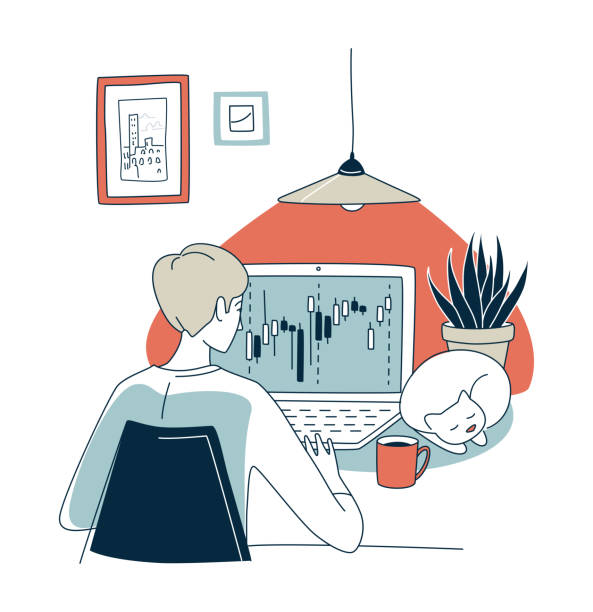Can You Make a Living from Trading? Realistic Expectations
The idea of making a living from trading—whether it's stocks, forex, crypto, or options—has captivated many. The allure is understandable: financial freedom, working from anywhere, being your own boss. But can you really trade for a living? The answer is: yes, but not easily, and not for everyone.
In this post, we'll break down what it really takes to succeed as a full-time trader and set realistic expectations for those considering the leap
Yes, It's Possible—But Rare
Plenty of traders do make a living from the markets. However, the success stories are a small fraction of the overall trading population. Most retail traders lose money. According to various broker disclosures and academic studies, roughly 70–90% of retail traders lose money over time.
So, while it's possible to succeed, it’s far from typical. Becoming a profitable, full-time trader requires skill, discipline, and resilience, not just capital and hope.
Capital Requirements Are Often Underestimated
One of the biggest myths is that you can start with $1,000 and be financially free in a year. In reality, making a consistent income from trading requires a sizable account. Here's why:
- Say you aim to make $50,000 a year.
- If you're making 10% annually (which is respectable), you'd need $500,000 to generate that.
- Even if you’re aggressively targeting 20–30% per year (which brings much more risk), you’d still need $150,000–$250,000.
Most people don’t have this kind of capital, and trying to trade aggressively on a small account usually ends in losses.
Consistent Profitability Takes Time
Trading is not a get-rich-quick scheme. Professional traders often spend years learning, practicing, and losing before becoming consistently profitable. Many aspiring traders quit long before they ever develop a profitable strategy.
You’ll need to:
- Learn technical and fundamental analysis
- Understand risk management
- Develop emotional discipline
- Keep meticulous records
- Constantly adapt to changing market conditions
Trading is a performance sport—it demands training, feedback, and persistence.
Expect Psychological Strain
Trading for a living sounds like freedom, but it often involves significant emotional and psychological pressure. There's no guaranteed paycheck, and your income will fluctuate with market conditions.
Common psychological challenges include:
- Fear of loss
- Revenge trading
- Overconfidence after wins
- Burnout from long screen time
Many traders underestimate how hard it is to stay objective under pressure, especially when your bills depend on your next trade.
Diversified Income Helps
Many full-time traders don’t rely solely on trading. They might supplement their income by:
- Offering coaching or courses
- Running a YouTube channel or blog
- Selling trading tools or indicators
- Freelancing or working part-time in finance
This hybrid approach reduces pressure and creates a financial buffer while building trading consistency.
The Bottom Line: Realistic but Cautious Optimism
You can make a living from trading—but it’s not easy, quick, or guaranteed. Treat it like starting a small business, not winning the lottery. If you approach it with discipline, humility, and patience, and you're willing to put in the work for years—not months—you might get there.
But if you're looking for instant income or an escape from a 9-to-5, trading might not be the golden ticket.
Final Tips for Aspiring Full-Time Traders:
- Start part-time while keeping another income source.
- Focus on risk management before profits.
- Track your trades religiously—know your edge.
- Be brutally honest with yourself about performance.
- Consider simulated trading or backtesting before risking real money
